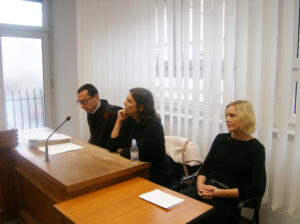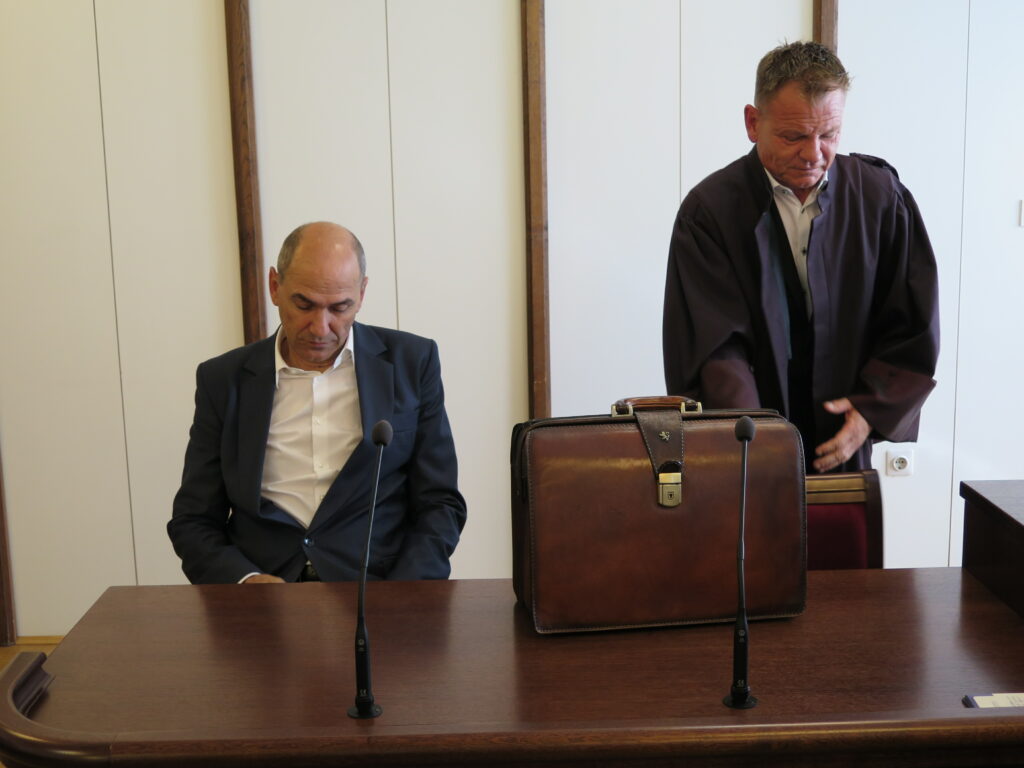The European Court of Human Rights (ECHR) has accepted an appeal by Janez Janša, president of the Slovenian Democratic Party (Slovenska demokratska stranka – SDS) and opposition politician, against the ruling of Slovenian courts in a dispute with journalist Evgenija Carl of the national media outlet, Radio-Television Slovenia (RTVS). The ECHR considers that in the court proceedings in question, there may have been a violation of Article 10 of the European Convention on Human Rights, as the judgment against Janez Janša violated his right to freedom of expression. It has also published this position (the document is available at the following link: https://hudoc.echr.coe.int/#{%22itemid%22:[%22001-244647%22]}).
The Court has notified the Government of the Republic of Slovenia of this and given it until the 13th of October, 2025, to reach a settlement with Janez Janša, otherwise, the case will proceed to a decision.
The SDS leader’s appeal emphasises the key role of freedom of expression in a democratic society. As an opposition leader, he has the right to draw attention to issues such as media impartiality, which are essential to the public interest. His tweet, although provocative, was metaphorical and posted on a platform known for heated exchanges. While the Slovenian courts recognised the political context, they overemphasised other aspects of the statement without sufficiently considering Janša’s position and the nature of the social network X (formerly Twitter).

Such a ruling risks restricting political debate, which could have broader implications for freedom of expression in Slovenia. The European Court of Human Rights will therefore assess whether the conviction was proportionate or unjustifiably restricted Janša’s rights if no settlement is reached between the parties.
The position of the ECHR and legal precedents
The ECHR recognised the possibility of a violation of Article 10 of the Convention, which protects the right to freedom of expression, including the dissemination of information and ideas, unless restrictions are lawful, necessary, and proportionate. The Court raised the question of whether Janša’s conviction violated this right, referring to precedents such as:
- Sanchez v. France (2023): Emphasises that politicians’ freedom of expression enjoys high protection, but must have a factual basis.
• Selahattin Demirtaş v. Turkey (2020) and Karácsony and Others v. Hungary (2016): Opposition politicians have the right to harsh criticism, as this is crucial for democracy. - Gaspari v. Armenia (2023) and Makraduli v. the former Yugoslav Republic of Macedonia (2018): Restrictions on freedom of expression must be minimal, especially on topics of public interest.
These cases indicate that the ECHR gives priority to freedom of expression in political debates, which strengthens Janša’s position.
By accepting the appeal and recognising a possible violation of Article 10 of the European Convention of Human Rights, the Court has shown that it will carefully consider whether the Slovenian courts have unjustifiably restricted Janša’s right to criticise the media. The Slovenian government has until the 13th of October, 2025, to settle the case, otherwise, the European Court of Human Rights will issue a decision that could confirm Janša’s position and strengthen the protection of freedom of expression in Slovenia.
A. H.


